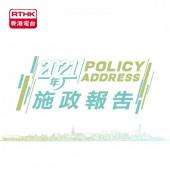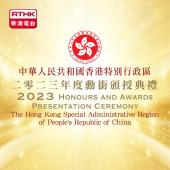 Loading ...
Loading ...Professor Joseph Cheng
2019-12-01
返回
Professor Joseph Cheng
2019-12-01
Dear Peter,
Thank you for your participation in the gatherings in Auckland in support of Hong Kong people.
The people have spoken. Last Sunday, I got up to vote early in the morning. I reached the Taikoo Shing Post Office polling station at 7:35 a.m., and there was already quite a long queue. I was touched and proud of Hong Kong. A voter turnout rate of 71.2% sets a new record for all territory-wide elections. The message from Hong Kong is clear: we use our votes to express our dissatisfaction with Carrie Lam administration, and to appeal to the government for a response to the protesters’ demands.
If one can use the vote to articulate one’s demand, and to remove a government which has failed to satisfy the people’s legitimate demands, then people do not have to protest in the streets, and clashes with the police can easily be avoided. Hong Kong people have now clearly articulated their demands. How will the Carrie Lam administration respond? Setting up an independent commission of inquiry is the essential first step to initiate a process of reconciliation, and the resumption of a dialogue with the community is to fulfill the Chief Executive’s earlier pledge. Hong Kong people cannot understand why they are not done.
A review commission following the model of the investigation into the Tottenham riots in 2011, as proposed by Carrie Lam, is inadequate. While more than 80% of Hong Kong people demand an independent commission of inquiry, the issue of police brutality is a top most important area of investigation, and the commission must have investigatory powers including the power to summon witnesses and subpoena documents. While most Hong Kong people would not object to the scope of inquiry covering the structural socio-economic causes of the crisis, limiting the inquiry to these broad socio-economic factors will not be accepted by the pro-democracy movement and the protesters.
Since the last open dialogue between the Chief Executive and members of the community, no follow-up action has been taken. The Chief Executive today has an obligation to meet the newly-elected District Councillors, the pro-democracy legislators, and the student leaders. The community is obviously dissatisfied with the sole emphasis on terminating violence and protests on the part of the Carrie Lam administration.
The Government’s policy dealing with the crisis at this stage must be clearly linked with how the society may return to normalcy. To resolve the crisis, Hong Kong people would like their demands be respected and met. A common question in the community has been: how will this crisis end? We do not see the light at the end of the tunnel, and we do not see that the government is working to reduce the confrontations in the society, resolve its serious contradictions, and heal its wounds.
Actually, even before the District Council elections, robust public opinion surveys consistently convey the same messages, but the government has ignored them. The District Council elections now send the messages to the entire international community; the 2.94 million voters obviously represent the silent majority who insist on non-violent political struggles.
The outcomes of the District Council election present a significant challenge to the pro-democracy movement too. With a majority in seventeen District Councils, how can the newly elected District Councillors carrying the banner of democracy better serve the electorate? At the end of 2003, the pro-democracy movement also performed well in the District Council elections in the wake of the protests against Article 23 legislation; but it then suffered severe losses in the 2007 District Council elections. The lesson is: District Councillors must serve their voters well; and as the majority in almost all District Councils, the pro-democracy councillors have to demonstrate their competence in governance.
The pro-establishment camp has lost badly in terms of seats in the elections, but its share of votes remains respectable. Its electoral machinery and its established networks of services reveal their substantial power. After the political crisis, it should be able to do well in the elections to come. Its principal weakness is: despite its satisfactory service delivery, people do not believe that it accords top priority to their interests.
From the emergence of the protests in June to the recent District Council elections, the Chinese authorities do not seem to understand Hong Kong people’s demands and core values. They now have lost a whole generation of young people, especially university students and secondary school students. Blaming teachers and the Professional Teachers’ Union is far from convincing. In many cases, even the parents of young protesters have failed to persuade their children to change their mode of political participation. Yet we do not see any process of reconciliation, and especially a process of reconciliation that aims at young people. Arrests and crackdowns on their own cannot solve a political crisis.
Hong Kong people have our baseline concerning their freedom, the rule of law and dignity, but we do not intend to challenge China’s state sovereignty and national security. The appeal for support from the international community and international public opinion reflects a deep sense of despair, and a loss of confidence in the institutions that are supposed to maintain law and order as well as to protect the people. Public opinion polls indicate that slightly more than half of the community has zero confidence in the police force, and slightly more than 40% of Hong Kong people have zero confidence in the Carrie Lam administration and the central government.
Genuinely upholding the community’s core values is the best guarantee for the maintenance of the territory’s stability and prosperity. During the Sino-British negotiations in the early 1980s, Hong Kong people often referred to the Aesop’s fable about the competition between the Sun and the North Wind in their individual attempt to remove the traveller’s overcoat. It seems that the fable remains relevant today. At the very least, Hong Kong people want to be left alone to pursue their life in peace.
The central government’s instruction to the Chief Executive therefore should be: uphold the community’s values, and make sure that the people are satisfied with the government’s performance. This should have been Carrie Lam’s principal task and her contribution to the nation.
My sincere gratitude to the people of Auckland and other New Zealand cities who have come out to support Hong Kong.
Best wishes!
Yours sincerely,
Joseph
Thank you for your participation in the gatherings in Auckland in support of Hong Kong people.
The people have spoken. Last Sunday, I got up to vote early in the morning. I reached the Taikoo Shing Post Office polling station at 7:35 a.m., and there was already quite a long queue. I was touched and proud of Hong Kong. A voter turnout rate of 71.2% sets a new record for all territory-wide elections. The message from Hong Kong is clear: we use our votes to express our dissatisfaction with Carrie Lam administration, and to appeal to the government for a response to the protesters’ demands.
If one can use the vote to articulate one’s demand, and to remove a government which has failed to satisfy the people’s legitimate demands, then people do not have to protest in the streets, and clashes with the police can easily be avoided. Hong Kong people have now clearly articulated their demands. How will the Carrie Lam administration respond? Setting up an independent commission of inquiry is the essential first step to initiate a process of reconciliation, and the resumption of a dialogue with the community is to fulfill the Chief Executive’s earlier pledge. Hong Kong people cannot understand why they are not done.
A review commission following the model of the investigation into the Tottenham riots in 2011, as proposed by Carrie Lam, is inadequate. While more than 80% of Hong Kong people demand an independent commission of inquiry, the issue of police brutality is a top most important area of investigation, and the commission must have investigatory powers including the power to summon witnesses and subpoena documents. While most Hong Kong people would not object to the scope of inquiry covering the structural socio-economic causes of the crisis, limiting the inquiry to these broad socio-economic factors will not be accepted by the pro-democracy movement and the protesters.
Since the last open dialogue between the Chief Executive and members of the community, no follow-up action has been taken. The Chief Executive today has an obligation to meet the newly-elected District Councillors, the pro-democracy legislators, and the student leaders. The community is obviously dissatisfied with the sole emphasis on terminating violence and protests on the part of the Carrie Lam administration.
The Government’s policy dealing with the crisis at this stage must be clearly linked with how the society may return to normalcy. To resolve the crisis, Hong Kong people would like their demands be respected and met. A common question in the community has been: how will this crisis end? We do not see the light at the end of the tunnel, and we do not see that the government is working to reduce the confrontations in the society, resolve its serious contradictions, and heal its wounds.
Actually, even before the District Council elections, robust public opinion surveys consistently convey the same messages, but the government has ignored them. The District Council elections now send the messages to the entire international community; the 2.94 million voters obviously represent the silent majority who insist on non-violent political struggles.
The outcomes of the District Council election present a significant challenge to the pro-democracy movement too. With a majority in seventeen District Councils, how can the newly elected District Councillors carrying the banner of democracy better serve the electorate? At the end of 2003, the pro-democracy movement also performed well in the District Council elections in the wake of the protests against Article 23 legislation; but it then suffered severe losses in the 2007 District Council elections. The lesson is: District Councillors must serve their voters well; and as the majority in almost all District Councils, the pro-democracy councillors have to demonstrate their competence in governance.
The pro-establishment camp has lost badly in terms of seats in the elections, but its share of votes remains respectable. Its electoral machinery and its established networks of services reveal their substantial power. After the political crisis, it should be able to do well in the elections to come. Its principal weakness is: despite its satisfactory service delivery, people do not believe that it accords top priority to their interests.
From the emergence of the protests in June to the recent District Council elections, the Chinese authorities do not seem to understand Hong Kong people’s demands and core values. They now have lost a whole generation of young people, especially university students and secondary school students. Blaming teachers and the Professional Teachers’ Union is far from convincing. In many cases, even the parents of young protesters have failed to persuade their children to change their mode of political participation. Yet we do not see any process of reconciliation, and especially a process of reconciliation that aims at young people. Arrests and crackdowns on their own cannot solve a political crisis.
Hong Kong people have our baseline concerning their freedom, the rule of law and dignity, but we do not intend to challenge China’s state sovereignty and national security. The appeal for support from the international community and international public opinion reflects a deep sense of despair, and a loss of confidence in the institutions that are supposed to maintain law and order as well as to protect the people. Public opinion polls indicate that slightly more than half of the community has zero confidence in the police force, and slightly more than 40% of Hong Kong people have zero confidence in the Carrie Lam administration and the central government.
Genuinely upholding the community’s core values is the best guarantee for the maintenance of the territory’s stability and prosperity. During the Sino-British negotiations in the early 1980s, Hong Kong people often referred to the Aesop’s fable about the competition between the Sun and the North Wind in their individual attempt to remove the traveller’s overcoat. It seems that the fable remains relevant today. At the very least, Hong Kong people want to be left alone to pursue their life in peace.
The central government’s instruction to the Chief Executive therefore should be: uphold the community’s values, and make sure that the people are satisfied with the government’s performance. This should have been Carrie Lam’s principal task and her contribution to the nation.
My sincere gratitude to the people of Auckland and other New Zealand cities who have come out to support Hong Kong.
Best wishes!
Yours sincerely,
Joseph
Politicians and public figures from a range of backgrounds take turns to have their say on important matters of the day in this personal view programme.
Catch it live: Sunday 8:15am - 8:25am
Podcast: Updated weekly and available after broadcast.










